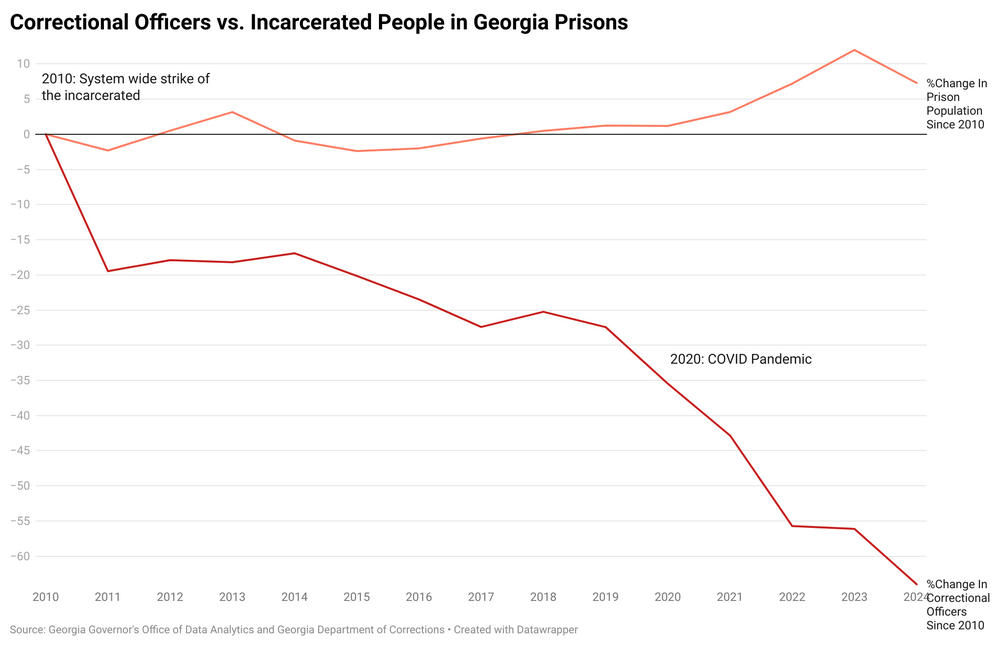
Caption
Georgia Department of Corrections cadets and trainers before the 2010 ribbon cutting for the department's training facility and offices in Forsyth. A labor strike of the incarcerated would come about month later. GDC lost over 2,000 correctional officers in the following year.
Credit: Grant Blankenship/GPB News


